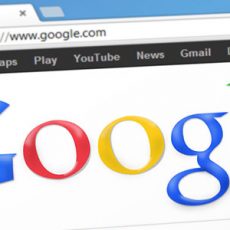
Nothing will be the same when this crisis is over. Just as the way we greet strangers will change, we will also put more value on health professionals, the corner pharmacist, our children’s teachers, the cashier at the supermarket. All of them, with different depth and levels of responsibility, have been there as our way of life has collapsed from a public health crisis unprecedented in recent history.
We will also look at economic activity differently. Think of how we are coping with the quarantine. We can continue working, perhaps distracted and undoubtedly concerned, but ultimately, we are working. Our children do schoolwork at home and can even see and chat with their friends on their mobile phone or the computer. With photos and images we can also check to see that our older relatives are fine, even if they are thousands of kilometres away. And in the evening, or on weekends, we entertain ourselves with movies and series that help us forget, for a while, the grim panorama outside.
As with the professionals, we have also discovered that there are economic sectors that are making sure that not everything stops. Think about the distribution of food, about farm workers and the large food chains; let’s also look at the crucial importance of telecommunications networks. They have maintained the rhythm of our lives when all else has failed.
Hopefully in the near future, when all this is over, we will be much more conscious of the importance of the internet and telecommunications networks and will value them accordingly: as a strategic asset that countries must protect, take care of and value.
Paradoxically, in a digital and globalized world, it has been what is closest to us in our country that has kept us standing: public health workers, farmers, networks of telecommunications operators, supermarkets.
Specifically, the network of networks has been placed at the service of the human network, preventing isolation, encouraging communication. And in particular, as an instrument for connection between health centres and research facilities to coordinate between groups, share information and move forward in finding possible treatments or vaccines. Conceptually, it isn’t a new essence of the internet, but rather a return to the original spirit: social media as a fabulous communication tool. Internet is a social network, but a true one. That is: not a space full of marketing tricks; not a succession of ‘fine print’ and conditions that the user doesn’t understand; not a tool to intrude in a person’s private life, etc. The marvellous internet that unites us wasn’t created for any of these practices. It was born to connect our knowledge, to make us more effective and more efficient when facing huge challenges, such as the ones we are confronting these days.
We have many lessons to learn from this crisis. The most important are, without a doubt, about our health systems. It should also make us reflect on our vulnerability: all our intelligence, all our knowledge and all our technology can be useless when faced with a ‘simple’ virus. We will have to improve what has failed us, and take care of what has allowed us to remain standing, the basic infrastructures, what we call ‘general interest services’. Nobody should doubt that telecommunications networks fall into this category: they are a strategic asset, connected to the territory, that countries must protect. Let’s be highly aware of this, and act accordingly.
The internet was born to connect people and knowledge. Not as a predatory machine devouring personal data, full of marketing traps.




